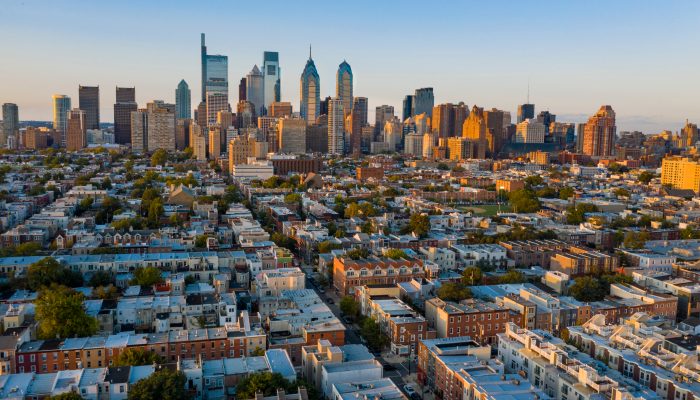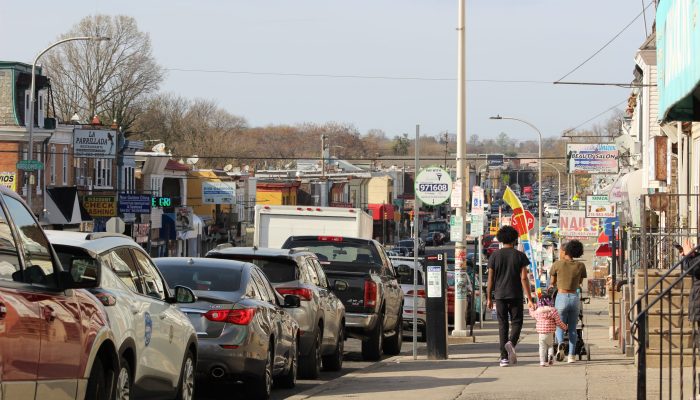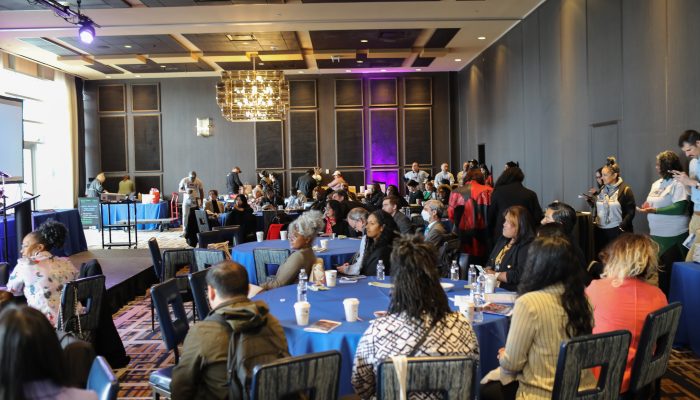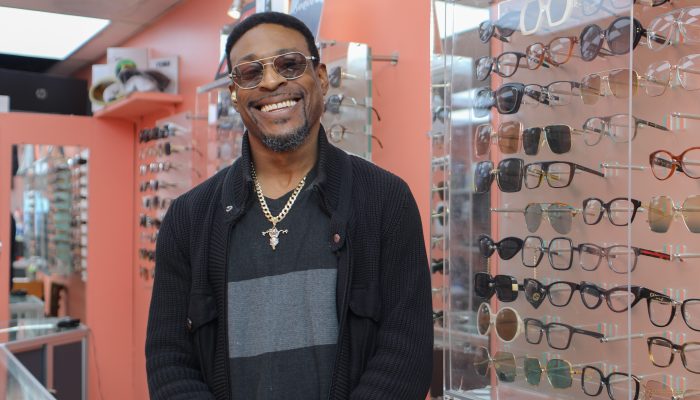This post was written by Lindsey Norward, Project and Communications Manager
The City’s Pathways to Reform, Transformation, and Reconciliation is an initiative formed in June 2020 as part of the City’s commitment to reform and reconciliation amidst widespread activism around police brutality and racial inequities in the city and country.
With continued progress, the initiative has guided the City’s efforts to break down barriers to success and build a more equitable city for all Philadelphians.
Through short-term, mid-term, and long-term objectives, the Steering Committee has focused their work on four main priorities: Police Reform and Public Safety, Economic Recovery, Community Engagement, and Public Health.
This is the progress after six months of collaborative work:
Progress as of January 31, 2021
Police Reform
During these six months, the City has worked closely with the Steering Committee to implement its police reform agenda, and to build stronger community relations and an equitable culture of the Philadelphia Police Department. The current police reform agenda focuses on five main categories: policy reviews and updates; behavioral and mental health-related operational reforms to protocol and policies; oversight, transparency, and equity; budgeting and collective bargaining; and state-level reforms.
Since the last Pathways update—provided on October 21, 2020, several developments and reforms have been made to the Philadelphia Police Department’s (PPD) policies:
- The Administration supported City Council legislation included on the November 3, 2020 election ballot regarding the creation of a permanent, civilian Police Oversight Commission. This Commission will conduct simultaneous, independent reviews of civilian complaints and use of force incidents. The specifics of the Commission’s duties will be developed in coordination with City Council.
- Implicit Bias Training. The Philadelphia Police Department has trained over 700 PPD personnel (sworn and civilian) since October 2020 in the NITRE Implicit Bias curriculum. This is part of the commitment made by the Philadelphia Police leadership to train the entire department by October 2021.
- 911 call takers screen calls with a new questionnaire for behavioral health-related concerns and incidents. As of November 30, 2020, 911 call takers now have a methodology to better identify when calls are related to behavioral health crises.
- The Crisis Intervention Training (CIT) class provides 911 call takers and dispatchers with training to identify crisis-related calls. This measure was successfully implemented on November 9, 2020 to more efficiently direct calls to CIT trained officers in the field.
- PPD is in the process of pre-planning for the rollout of four co-responder teams, composed of CIT trained officers and mental health professionals contracted by DBHIDS. These personnel will jointly respond to calls identified by Police Radio on a single shift. Based on information gathered in the pilot stage, Philadelphia Police Department and DBHIDS will work to develop a proposal to add more teams to build 24/7 coverage across the city.
- CIT officer training is expanding. Currently, there are 3,100 CIT trained officers. Fifty percent of Philadelphia Police Department officers are CIT trained and are assigned throughout the city on all tours of duty. The goal is to have all patrol officers CIT trained ending in December 2022. This initiative is currently being carried out on a rolling basis.
- The CIT and taser training is being decoupled to ensure faster taser availability Prior PPD policy required officers to receive 40 hours of CIT training in addition to eight hours of TASER training before issuing a taser device. Due to the time constraints of CIT training as well as the limited number of class spots available, the PPD continues to expedite the availability of taser devices into the field through a decoupling pilot program. Through this pilot, the last four Police Academy classes were issued tasers after receiving the eight hours of required training. Decoupling CIT and taser training will allow current Philadelphia Police Department officers an expedited use of tasers and allow CIT training to be scheduled without delay.
Economic Recovery
The City’s efforts toward economic recovery, in collaboration with the Inclusive Economy subcommittee, prioritize reviewing the City’s budget, investing in historically-disadvantaged communities, and supporting small businesses. The City continues to foster inclusive and equitable economic recovery as laid out in the economic recovery plan, Respond Restart Recharge Reimagine: An Equitable and Inclusive Economic Recovery for Philadelphia, released in the fall. Since the last Pathways update, key initiatives have begun and expanded.
In October, the City launched its Philadelphia Taking Care of Business (PHL TCB) Clean Corridors Program, a $7 million economic development initiative that expands the Department of Commerce’s existing commercial corridor cleaning efforts from 49 commercial corridors to 85 throughout the city. PHL TCB invests in people and small businesses by creating employment opportunities for residents and keeping Philadelphia’s neighborhood commercial corridors clean.
To further support the city’s small businesses and entrepreneurial community, the Department of Commerce also launched a new resource tool that helps connect local business owners and entrepreneurs with organizations that offer guidance on starting, running, and growing a business. On the Business Resource Finder, users can search for free or low-cost services available to Philadelphia businesses, including funding opportunities, legal assistance, workshops, and more.
In addition, the Administration has continued to support grant programs aimed at equitable economic recovery. These include:
- A new commitment of $7 million dollars in Coronavirus Aid, Relief, and Economic Security (CARES) Act funding directed to the COVID-19 Relief Pennsylvania Statewide Small Business Assistance program to support additional Philadelphia businesses. This is in addition to the $30 million the City previously directed to the program, for a total of $37 million.
- The Philadelphia COVID-19 Restaurant and Gym Relief Program, a $12 million grant program from the City and PIDC designed to provide financial relief to small businesses that were among the most adversely affected by the latest round of pandemic-related restrictions enacted in November 2020. Priority will be given to businesses that are located in high poverty areas or on neighborhood commercial corridors, are minority-, woman-, or disabled-owned, provide jobs to Philadelphians, or suffered damage in 2020 due to civil unrest.
Community Engagement
City offices have worked together with local entities to thoughtfully engage with the community in addressing necessary actions around reform, specifically in regard to public safety and police reform. The City has also worked to review holidays, landmarks, and public spaces.
In three sessions that began October 8, 2020, and will end February 11, 2021, the Office of Faith-Based and Interfaith Affairs held its series “Law, Order, & God,” a multi-part engagement focusing on faith and public safety, with members of Vine Memorial Baptist Church. The series will continue with other congregations in early 2021.
On November 30, the Community Engagement subcommittee, in conjunction with the City’s Office of Public Engagement and the Philadelphia Police Department, held Circles of Truths, a two-hour event centered around truth-sharing, grief, and building a space for healing, discussion, and listening as the City works towards building an equitable future for all. The series’ opening session centered on addressing and repairing harm while compiling collaborative feedback. Moving forward, it will focus on fostering relationships, community building and the continued development of public safety and policing reforms. This series will continue this year.
Additionally, on January 16, 2021; the Mayor’s Office of Youth Engagement and the Innovation Lab hosted “Operation Innovation”, a space where Gen-Z Philadelphians aged 13-25 came together to design the Philadelphia they want to live in. In this space, Gen-Z residents worked to reimagine existing public safety frameworks in an effort to bring fresh perspectives and elevate the ingenuity of the city’s youngest residents. The first session in this series was focused on public safety and provided a valuable youth lens to the City’s Pathways to Reform, Transformation and Reconciliation work.
In addition to efforts to increase community relations between the PPD and residents, the Steering Committee has prioritized reviewing Philadelphia’s public art and landmarks. Led by the Office of Arts Culture and the Creative Economy (OACCE), the Landmarks and Monuments Review will be a public-driven process to ensure that the City of Philadelphia’s values of inclusiveness, integrity, and respect for the diversity of its citizenry, visitors, and history is reflected in its monuments and public art, as well as in the names of its City-owned landmarks. The Landmarks and Monuments Review will set the criteria and a process to rename or change any landmark or monument that does not align with these values. The process will also ensure that the future naming of landmarks and the commissioning of new public art and monuments reflect these values.
Over the last six months OACCE:
- Held meetings with the Steering Committee, the Philadelphia Parks and Recreation, Streets Department, Managing Directors Office, Law Department, Department of Public Property, the Records Department, Mayor’s Office, Philadelphia Department of Planning and Development, Philadelphia Historical Commission, and the Philadelphia Art Commission to develop a draft of the criteria and process for the Landmarks and Monuments Review.
- Reviewed how cities and universities are addressing confederate monuments, the history of Philadelphia street names, and best practices in community engagement to inform the City of Philadelphia’s Landmarks and Monuments Review process.
- Worked with the Office of Information Technology to develop a comprehensive database of the City’s monuments, public art and each park, recreation center, street, playground, etc. to be considered on the Landmarks and Monuments Review Process. This represents approximately 7,000 city-owned assets.
- Launched a more robust community engagement process to commission new public artwork to reflect the diversity of Philadelphia’s neighborhoods.
- Implemented a comprehensive community engagement process for the Bethel Burying Ground Historic Site Memorial, a public art memorial to recognize and celebrate the over 5,000 African Americans buried at the historic Bethel Burying Ground, located beneath Weccacoe Playground in Queen Village.
In addition, the Administration has worked to examine and update City holidays in relation to racial justice. On January 27, 2021, Mayor Jim Kenney signed Executive Order 2-21, which made two changes to the list of City Holidays. The City of Philadelphia will once again recognize Juneteenth (June 19) as a holiday; and, for the first time, the City holiday celebrated on the second Monday of October will be recognized as Indigenous Peoples’ Day rather than Columbus Day. These changes, instituted via Executive Order 2-21, will be in place at least through the end of the Kenney administration. The City will also continue to pursue including these changes permanently as part of the Collective Bargaining Agreements with the four municipal worker unions, which expire this year.
Public Health
With a focus on providing an equitable lens to public health, the Steering Committee has worked to advance the City’s health reform agenda. Disparities in outcomes from COVID-19 between racial and ethnic groups result from the accumulated impact of centuries of systemic racism. To mitigate the impact on Black and brown communities, the Philadelphia Department of Public Health (PDPH) is working with community organizations and stakeholders to ensure that the City’s response to this pandemic focuses resources on those at the highest risk.
The Philadelphia Department of Public Health continues to implement its Coronavirus Interim Racial Equity Plan, which focuses on strategies for addressing race-based disparities during the pandemic. Since the last Pathways update, the department also released an interim plan documenting equitable strategies for distributing COVID-19 vaccines in Philadelphia.
Given supply limitations, the City has implemented a phased approach to vaccine distribution. Early vaccination efforts are focusing on healthcare workers, frontline and essential personnel, and individuals at the highest risk for developing severe illness from COVID-19.
For more information, events, and progress on the Pathways to Reform, Transformation, and Reconciliation efforts, visit its website




